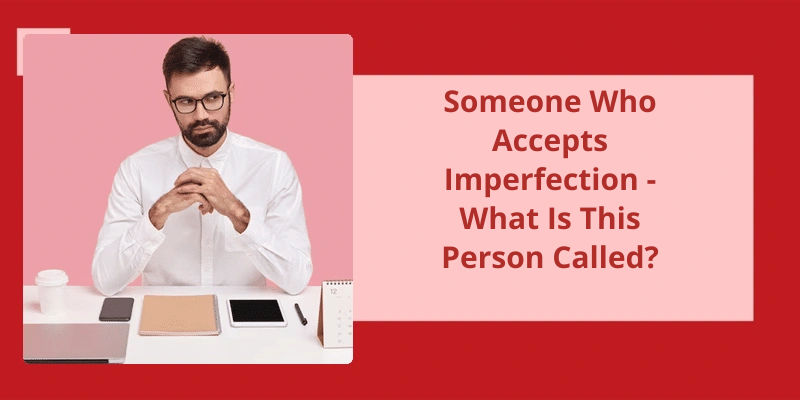There comes a time in everyone's life when they’ve questioned why they always have to beg people to love them. It can be a very emotional and seemingly never-ending cycle. Seeking validation and love from others can lead to feelings of rejection and disappointment, which can weigh heavily on one's self-esteem. Sometimes, we unknowingly fall into patterns of seeking attention and love, but it’s important to understand why we do it and how to break free from this damaging behavior. Perhaps it’s rooted in past experiences or a fear of being alone. Whatever the reason may be, it’s crucial to find a way to love and accept oneself first before we can expect others to do the same.
Is It Bad to Beg Someone to Love You?
When someone doesn’t reciprocate your feelings towards them, it’s important to understand that it isn’t your fault. Trying to get someone to love you may only result in you feeling worse about yourself in the end. Even though it may be painful to accept that the person youre interested in doesn’t feel the same way, it’s vital to remember that it doesn’t diminish your worth as a person.
Begging for love also has the potential to push the other person away even further. It can create an uncomfortable situation for both parties involved and may cause them to feel trapped or pressured. This can lead to resentment and may damage any chances of a future relationship. It’s important to respect the other persons feelings and give them the space they need to figure things out on their own.
Furthermore, begging someone for love can also set a dangerous precedent for future relationships. If you’re willing to beg for love, you may end up settling for less than you deserve in other aspects of your life. This can lead to a pattern of unhealthy relationships and may ultimately harm your mental health.
It’s important to remember that love should be a mutual and equal partnership. It shouldn’t be one-sided or forced. If someone isn’t interested in being in a relationship with you, it isn’t a reflection of your worth as a person. Instead, focus on building a relationship with yourself and engaging in activities that bring you happiness and fulfillment.
The Dangers of Having Low Self-Esteem and How It Relates to Begging for Love.
Low self-esteem can lead individuals to feel unworthy of love and attention, causing them to beg for it from others. This behavior can be harmful as it can lead to unhealthy relationships and a lack of self-respect. Building self-esteem is important for individuals to develop a positive self-image and cultivate healthy relationships.
It’s a common experience to feel like you’re constantly begging for love. Often times, people can develop a sense of imposter syndrome in their relationships, where they feel unworthy of their partner’s love and affection. This can lead to constantly putting their partner’s needs before their own, just to maintain the relationship. But why does this happen and what can you do about it? Let’s explore some possible reasons and solutions.
Why Am I Always Begging for Love?
You may feel like you’re constantly begging for affection, attention, and validation from others. This feeling can be caused by a low self-esteem or a lack of self-worth. You might be seeking love and admiration from others in order to fill a void that you feel inside. This could stem from childhood experiences, past relationships, or personal insecurities.
It’s important to recognize that you’re deserving of love and respect. You shouldnt have to constantly beg for affection from others, especially if it’s draining you emotionally and mentally. You need to learn how to love and value yourself first before seeking it from others. Only then can you’ve a healthy and fulfilling relationship.
One reason you may feel a constant need for love and attention from others is because you’re afraid of being alone. This fear can lead you to cling to people and put their needs before your own. However, being alone isn’t equivalent to being unloved. In fact, learning how to be happy and content on your own can actually make you more attractive to others.
You may also be struggling with codependency, which is a pattern of behavior where you rely on others for your own self-worth and identity. This can lead to unhealthy and toxic relationships where you’re sacrificing your own needs and wants for the sake of the other person. It’s important to recognize these patterns and seek professional help in order to break free from them.
Ultimately, learning how to love yourself and recognize your own self-worth is crucial in stopping the cycle of constantly begging for love from others. It takes time and effort but with the right mindset and support system, you can break free from this pattern and find true happiness and fulfillment within yourself.
Ultimately, begging in a relationship can often leave one feeling insecure and powerless, especially if their partner isn’t receptive to their pleas. It can diminish one’s sense of self-worth and cause further damage to the relationship. As such, understanding the root causes of why one may be tempted to beg and addressing those underlying issues may be a more effective strategy for healing and moving forward.
Is Begging Bad in Relationship?
Begging is an action where one person is desperately asking for something from another person. In relationships, begging can occur when one person wants the other person to stay or come back after a break-up. Although it may seem like a good idea to beg for someones affection, it isn’t a healthy behavior in relationships. In fact, begging can have negative effects on both the person begging and the person being begged.
When a person in a relationship begs for someones affection, they’re essentially losing their sense of self-worth. It sends a message to the other person that their worth isn’t valued and that they need to work hard to gain the other persons approval. This can create a power dynamic in the relationship where one person is deemed less valuable than the other.
In order to have a healthy relationship, both parties need to be willing to give and take. Begging for affection isn’t a healthy way to achieve this balance. Instead, it’s important to communicate openly and honestly with one another. This includes expressing your needs and wants in a respectful manner while also considering the other persons needs and wants as well.
It can create negative power dynamics, cause resentment, and lead to a lack of self-worth. By doing so, you can build a strong, healthy relationship where both parties feel valued and heard.
The Underlying Causes of Begging in Relationships
Begging in relationships can be caused by underlying issues such as low self-esteem, fear of abandonment, dependency, and the imbalance of power dynamics in the relationship.
In relationships, the need for attention and affection can sometimes become a source of frustration and confusion. However, understanding the reasons behind these feelings can help to work towards finding a solution. One possible reason for feeling the need to beg for affection is the tendency to prioritize your partner’s happiness over your own. In such cases, it’s important to remember that while healthy relationships involve mutual care and consideration, it’s equally vital to focus on one’s own needs and happiness. After all, you can only control your own state of mind and emotions, not your partner’s.
Why Do I Have to Beg for Affection?
Another reason you may feel the need to beg for affection is due to insecurity. If you don’t feel secure in your relationship, you may constantly seek validation from your partner. This can be detrimental to your self-esteem and can cause strain on the relationship. It’s important to communicate with your partner and work on building trust and security in the relationship.
Additionally, past experiences or traumas may affect your ability to receive and give affection. It may be necessary to seek therapy or counseling to work through these issues. It’s okay to ask for help and prioritize your own mental health.
It’s important to consider the dynamics of the relationship as well. If your partner isn’t meeting your needs for affection, it may be necessary to have a conversation and set boundaries. However, if your partner consistently disregards your needs and dismisses your feelings, it may be time to reassess the relationship and determine if it’s healthy for you.
In some cases, begging for affection may become a pattern and can lead to a toxic cycle of codependency. It’s important to recognize when this is happening and take action to break the cycle. This may involve seeking support from friends or family, practicing self-care and setting boundaries.
Remember, you deserve love and affection. It’s important to prioritize your own happiness and well-being in any relationship. Communicate your needs, set boundaries and seek support when necessary.
The Impact of Childhood Experiences on One’s Ability to Give and Receive Affection
- Positive childhood experiences can lead to greater capacity to give and receive affection.
- Negative childhood experiences, such as abuse or neglect, can impair one’s ability to form healthy attachments and relationships.
- Early experiences with caregivers play a significant role in shaping neural pathways related to social and emotional functioning.
- Therapeutic interventions, such as attachment-based therapy, can help individuals heal from early childhood trauma and improve their ability to give and receive affection.
Source: Don’t Beg for Attention in a Relationship: 9 Things to Do Instead
Conclusion
In conclusion, the constant need for love and validation from others isn’t uncommon, and it can stem from various underlying factors such as past traumas, low self-esteem, or fear of abandonment. It's important to prioritize self-love and self-acceptance, to understand that we’re worthy of love regardless of external validation, and to seek help if needed. It's also essential to acknowledge that not everyone will reciprocate our love, and that's okay. We can't force people to love us or validate us, and it's not our responsibility to do so. Ultimately, the most fulfilling and long-lasting love comes from within ourselves, and when we prioritize that, we attract genuine connections that are built on reciprocity and respect.






